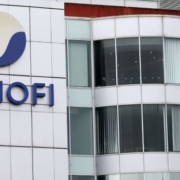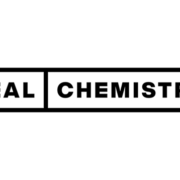Vertex Q3 revenue falls short, looks to potential CRISPR therapy approval
Vertex Q3 revenue falls short, looks to potential CRISPR therapy approval
Published: Nov 07, 2023
By Tristan Manalac
BioSpace
Vertex Pharmaceuticals on Monday released its third-quarter earnings report, bringing in $2.48 billion in revenue, a 6% increase from the same period in 2022. However, the Boston-based biotech fell slightly short of Wall Street’s estimates.
Analysts expected $2.5 billion in revenue for Vertex in the third quarter. The biotech’s shares dropped 2% in after-hours trading Monday in response to its sales figures, according to Seeking Alpha.
Much of Vertex’s growth can be attributed to its three-drug cystic fibrosis (CF) treatment Trikafta (elexacaftor/tezacaftor/ivacaftor), which brought in more than $2.27 billion in the third quarter, up from its approximately $2 billion in revenue during the same period last year.
Trikafta’s launch in pediatric CF patients aged two to five years, as well as continued strong demand in international markets, drove its market performance, according to Vertex’s announcement. Meanwhile, Vertex’s older CF products were hit with declining sales, dropping from $323 million in the third quarter of 2022 to $209.2 million in the most recent quarter.
Trikafta is a combination of three drugs that, when taken together, promote the normal and healthy function of the CF transmembrane conductance regulator (CFTR) protein, the gene which is mutated in CF and encodes for a faulty protein. The therapy was first approved in October 2019.
Vertex said in Monday’s third-quarter results that it is expecting even more growth for its CF franchise, including Trikafta. The biotech “anticipates the number of CF patients taking our medicines will continue to grow, including through new approvals and reimbursement for the treatment of younger patients.”
Last week, however, the U.K.’s National Institute for Health and Care Excellence (NICE) released draft guidance noting that while Trikafta—sold under the brand name Kaftrio—is an effective treatment for CF, it does not fulfil the agency’s cost-effectiveness criteria.
NICE’s cost-effectiveness recommendations are still not final and will not affect Trikafta treatment that had been started previously. The U.K. agency will also still have to go through a consultation period with shareholders, followed by another committee meeting to discuss the responses and any new evidence that might arise before the guidance is finalized.
Beyond Trikafta and CF, Vertex is expecting to grow its business through an upcoming potential FDA approval for the CRISPR-based gene-editing therapy exagamglogene autotemcel (exa-cel), which it is developing in partnership with CRISPR Therapeutics. Exa-cel is slated to be a one-time functional cure for sickle cell disease and transfusion-dependent beta-thalassemia.
Last week, the FDA’s Cellular, Tissue, and Gene Therapies Advisory Committee agreed that Vertex and CRISPR had done enough to establish the safety of exa-cel, particularly in terms of its off-target effects. The FDA’s regulatory decision is due by Dec. 8.
With Trikafta’s strong third quarter showing and the potential of new product launches, Vertex raised its full-year 2023 outlook on Monday. The company new expects to make approximately $9.85 billion, up from its previous guidance range of $9.7 billion to $9.8 billion.
Source: BioSpace










